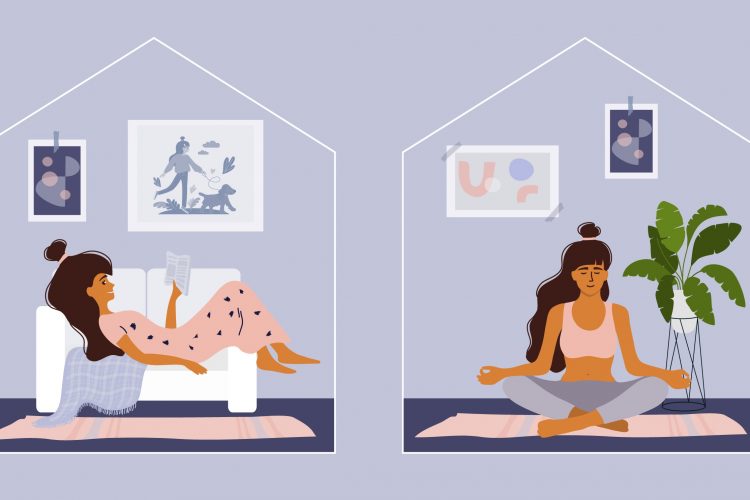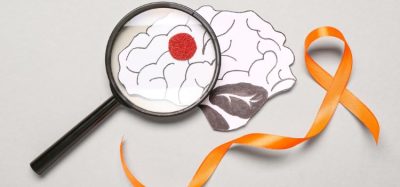How to take care of your mental health during the COVID-19 pandemic
Posted: 1 April 2020 | Victoria Rees (European Pharmaceutical Review) | 3 comments
During the COVID-19 pandemic, when many are in lockdown or self-isolating, mental health could suffer. This article suggests some ways to stay healthy over this period.


The COVID-19 pandemic is creating stress for the global population. Empty store shelves, fear about the disease and quarantine or self-isolation can negatively impact depression and anxiety. The mental health implications of this unprecedented situation will impact everyone differently, leading clinical psychologists to offer a guide on how to support and manage one’s mental health and that of others during these times.
“Global concern about coronavirus means it’s very important to keep the normal routine as much as possible when it comes to sleep, nutrition and exercise, particularly in people with existing mental health problems,” says Daniel Mansson, clinical psychologist and co-founder of Flow Neuroscience, which compiled the guidance. “In the current situation, finding ways to maintain your normal routine is essential to reducing stress and potential depressive thoughts that may appear.”
Filter news and social media
Constant news about the pandemic can feel relentless and may exacerbate existing mental health problems. Be careful about the balance of watching important news and the news that could cause you to feel depressed and disrupt your mental health. Seek trusted information, such as the National Health Service (NHS) website, at specific times to take practical steps to protect yourself and loved ones. Have breaks from social media and mute triggering keywords and accounts.
Talk openly about mental health
Some people might feel that talking about their depression and anxiety requires no additional attention during these times – people should be encouraged to talk about their feelings. Various support helplines are available, including Samaritans, as well as mental health crisis services, details of which can be found via the mental health charity Mind.
Eat an ‘anti-depression diet’
Anxiety is likely to increase during the current crisis, but a well-nourished body is better at handling stress. Traditional Mediterranean food, sometimes referred to as the ‘anti-depression diet’, for its anti-oxidant and anti-inflammatory properties, includes whole grains, vegetables (particularly green leaves), fruit, berries, nuts (including almonds), seeds and olive oil to look after your mental health.
Get therapeutic sleep
Ninety percent of depressed people struggle with sleep, which is likely to increase with fears over the coronavirus. Good quality sleep is a form of overnight therapy and increases the chance of handling strong emotions effectively. Try to wake up and go to bed at the same time every day. Achieving eight hours of sleep, taking a hot bath, setting the bedroom temperature to 18°C and having no screen time two hours before bedtime will also help.
Exercise as a depression treatment
With months of the coronavirus pandemic ahead, it is important to keep exercising. Clinical studies show that regular exercise produces chemicals, such as dopamine and serotonin, which are as effective as antidepressant medication or psychotherapy for treating milder depression. Most people will not have access to a gym during the crisis, so it is important to create a daily exercise routine at home. Experts recommend between 30-40 minutes of exercise, three to four times a week to work up a sweat. People with depression often struggle with exercise, so start small with a 10 minute walk, then add a few minutes daily.
Related topics
Industry Insight, Personalised medicine, QA/QC, Therapeutics
Related organisations
Flow Neuroscience, MIND, National Health Service (NHS), Samaritans










Thank you for bringing up such an undoubtedly important topic that plays a big role in modern realities. I never would have thought that being at home in quarantine is so debilitating for mental health in general. As a homebody, I always liked to spend my evenings at home and I did not see this as a big problem before quarantine. Then I understand that when they take away any opportunity to leave the house, it becomes a real torture. Now I understand how difficult it is and I understand that even if I need help after this, I cannot imagine those people who live in unfavorable conditions.
Great content! This is exactly the sort of thing I was looking for. Thanks for your help 🙂
I completely agree with the anti-depression diet. This is an interesting post to read. Thanks for sharing!!